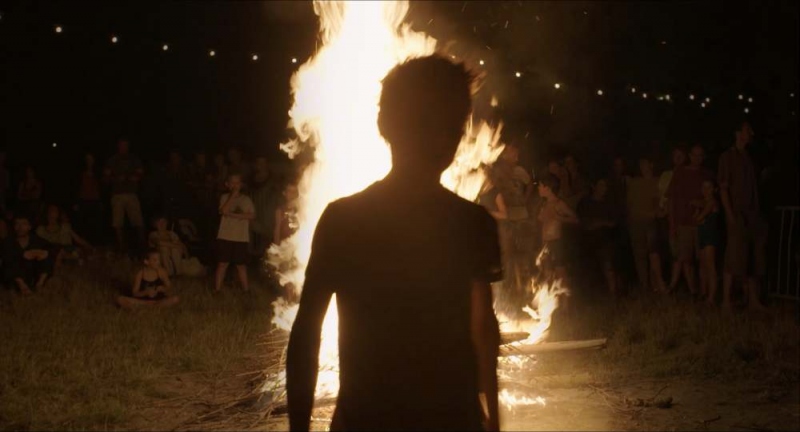WATCH DOCS daily schedule: Wednesday, Dec 9 | WATCH DOCS
Jump to contentWATCH DOCS daily schedule: Wednesday, Dec 9
How do you live being aware of the end? How do you live with the experience of a genocide? How do you live in an increasingly polarized world? We invite you to join us for important and moving discussions during another day of the WATCH DOCS. Human Rights in Film IFF.
5:00 p.m. A talk with Emmanuel Cappellini, director of "Once You Know"
About the film: How does it feel when you already know no miracle will happen to stop a climate catastrophe? As a committed filmmaker and activist, Emmanuel Cappellin decided to dedicate his film to global warming. He suffered a nervous breakdown on his way to China aboard a giant container ship. The climate depression forced him to reevaluate his life and make several key choices. But his film is not a chronicle of internal dilemmas. Starting from very personal experiences, Cappellin does not lose sight of the wider context; instead of creating another warning of the impending crisis, he shows how to minimize its effects. He visits people who have had to learn to deal with extreme weather events and their aftermath and talks to experts who are looking for practical solutions for difficult times. Sooner or later we will all have to face the tough questions posed by his film.
What is the result of comparing the experiences of survivors of the Holocaust and the 1994 Rwandan genocide? How do we act on our knowledge of the repeatability of genocide? In reference to the film by Aleksander Edelman and Anne Agranat "Hashmadot."
Participants:
- Joanna Kos-Krauze - director and scriptwriter, together with Krzysztof Krauze, she created the film "Birds Are Singing in Kigali" which deals with the genocide in Rwanda
- dr Aleksandra Gliszczyńska-Grabias - Assistant Professor at the Poznan Centre for Human Rights of the Institute of Legal Sciences at the Polish Academy of Sciences, author of scientific publications, expert on anti-discrimination law at the Council of Europe
- Aleksander Edelman - co-director of the film "Hashmadot"
- Anne Agranat - co-director of the film "Hashmadot"
- Dariusz Stępiński - protagonist of the film
Moderator: Sylwia Gregorczyk-Abram - advocate and social activist, co-founder of the "Free Courts" civic initiative, Justice Defense Committee and member of the board of the Prof. Zbigniew Hołda Association, associated with the Clifford Chance law firm.
The conversation will be translated into Polish sign language.
8:00 p.m. A talk with Robert Kowalski, director of "Descendants of the Latin Civilization"
About the film: Their goal is formation of a "Great National Poland," a slogan which they shout every year as they march down Warsaw streets on November 11, National Independence Day. It started in 1996, when the only people marching were members of the National Rebirth of Poland, a radical nationalist party. As of 2010, many far-right groups began marching together - the National Rebirth of Poland, All-Polish Youth, Autonomic Nationalists and others. During the early years, marchers manifested national pride in an overtly fascist and anti-Semitic way. Men in brown shirts raised their hands in a Nazi salute. While over time the Roman salute was replaced with Jesus, Mary and the cross, the organizers are unable to stop anti-Semitic slogans despite their attempts at caution and "Jews out, Poland is ours" is an annual chant. The March of Independence has grown in size each year. In 2018, 250,000 people marched, including the leader of the ruling party, Jarosław Kaczyński. Organizers emphasize that the participants are "ordinary Polish families with children." The film shows the marches in 2016-2020, when the organizers had informal agreements with the police to stay out of each other's way. All manifested chauvinism, anti-Semitism, racism and homophobia. All wished imminent death upon enemies of the motherland.
